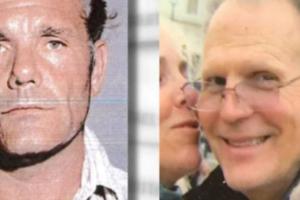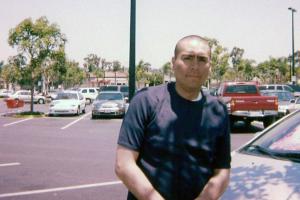News Coverage
Widow of SDPD Criminalist Accused in Cold Case Murder Awarded Further Damages
A jury awarded $50,000 in punitive damages Tuesday to the widow and estate of a retired San Diego Police Department criminalist who committed suicide after he was accused of a cold case murder, adding to $6 million in compensatory damages awarded last week.
Jury: $6M to Widow Whose Spouse Killed Self in 1984 Murder Probe
The widow of a retired police criminalist who killed himself while under investigation in the slaying of a 14-year-old girl in 1984 was awarded $6 million by a federal jury in San Diego, the San Diego Union-Tribune reported Friday.
Jury awards $6 million to widow of criminalist who committed suicide during murder investigation
'The widow of a retired police criminalist who committed suicide while under investigation in a 30-year-old murder case was awarded $6 million by a federal jury in San Diego Friday afternoon.'
'Iredale said Lambert disregarded Brown’s mental health and kept the items because he wanted a confession that would crack the case and make the detective a star in the cold-case unit. “You didn’t get a confession,” Iredale said. “You got a suicide.”'
Criminalist implicated in cold-case murder never told detectives about possible contamination source
During cross-examination Wednesday, Adams said she and Lambert used a “ruse” early in their interview with Brown to get him talking. They showed him a fake “field interrogation card” that quoted Tatro as saying he knew Brown. (Detectives never found any evidence that the two knew each other.) Such ruses are legal, but Eugene Iredale, an attorney for Rebecca Brown, suggested in his questioning that it rattled Kevin Brown and sent him scrambling for explanations.
Detective describes ‘ruse’ aimed at pressuring criminalist who later committed suicide
San Diego police detective Michael Lambert had a problem. DNA tests from a 30-year-old murder he was investigating pointed to two suspects. One was a convicted rapist. The other was a retired police criminalist named Kevin Brown. But there was no evidence the two ever met, let alone acted in concert to mutilate and murder 14-year-old Claire Hough on Torrey Pines State Beach in the August 1984. He eventually concocted a connection, the detective testified Monday in San Diego federal court, where he is being sued by Brown’s widow. Brown, 62, killed himself while he was under investigation for the murder, and the lawsuit seeks unspecified damages for wrongful death and civil-rights violations.
Widow details downward spiral of criminalist during murder probe
Kevin Brown committed suicide as cold-case investigation stretched on and detectives closed in.
Trial highlights pitfalls and promise of cold-case DNA evidence
The testimony so far has come from witnesses called by Rebecca Brown’s legal team, headed by Eugene Iredale. In his opening statement last week, he told the jury, “This is about the value of a human life and the value of the constitutional rights that are supposed to protect us all.”
Police suspected a crime lab technician of murder. Their mistake led him to hang himself.
On an August night in 1984, a 14-year-old girl named Claire Hough went for a walk on the beach with a portable radio and a pack of cigarettes. She never came home. The next morning, a man found her body, strangled and mutilated.
Crime lab worker testifies he might have contaminated evidence in 1984 murder case
In a surprise admission, a former San Diego police crime lab worker said Tuesday he might have inadvertently contaminated evidence in a 1984 murder case, mistakenly leading investigators to believe 30 years later that another criminalist from the lab was involved in the killing.
That other criminalist, Kevin Brown, committed suicide while under investigation. His wife of 21 years, Rebecca, is now suing the police for wrongful death in federal court and seeking unspecified damages.
Trial over criminalist's suicide opens with competing pictures of SDPD detective
Case may hinge on what veteran homicide detective knew about possible lab contamination.
What did the detective know, and when did he know it?
That question emerged Monday as a key issue in a wrongful death trial involving the San Diego Police Department and a retired criminalist who committed suicide in October 2014 while under investigation in the murder 30 years earlier of a teenage girl.
In his opening statement Monday, Eugene Iredale, who represents the widow, Rebecca Brown, said lead detective Michael Lambert disregarded comments he received from other lab employees and misled a judge while obtaining a warrant to search the Browns’ Chula Vista home in early 2014.
A retired SDPD criminalist suspected of murder killed himself. Did the investigation go too far?
A DNA expert hired by the widow’s legal team — led by San Diego attorney Eugene Iredale — said in a report that she would have expected to find a lot more sperm if, as detectives initially alleged, Brown had raped Hough. None was found anywhere on her body or clothes. Police surmised that was because Brown had a low sperm count or had not fully ejaculated, but the DNA expert said the trace amount on the swab is more likely from contamination.
No one doubts Kevin Brown acted alone when he hanged himself at Cuyamaca Rancho State Park more than five years ago.
But what led to the suicide?
Four prisoners dead in six weeks: the crisis unfolding in San Diego county jails
Four prisoners dead in six weeks: the crisis unfolding in San Diego county jails
Four deaths in six weeks is troubling, Aaron Fischer, an attorney with Disability Rights California who co-wrote last year’s report, told the Guardian in response to the latest incidents. “When someone dies by suicide in a system’s highest level of care, there is enormous cause for concern about whether the system is capable of keeping people safe,” Fischer said.
The report found the San Diego jails struggled with an over-incarceration of people with mental health-related disabilities, failed to provide adequate mental health treatment to inmates, did not have in place appropriate suicide prevention practices and lacked oversight.
Deaths in San Diego county jails have prompted at least a dozen lawsuits since 2008 and more than $7m in settlements – yet critics say there have been few reforms.
Attorneys such as Julia Yoo, whose firm Iredale & Yoo has represented families in several lawsuits, wonders if the sheriff’s department is learning from previous incidents.
Yoo’s law firm is currently handling two such cases. In one, a man diagnosed with schizophrenia, whose illness caused him to drink water uncontrollably, died of water intoxication after the jail ignored warnings to monitor his water intake. In another case, a schizophrenic man was Tasered four times and suffered cardiac arrest after deputies pinned him to the ground.
“It seems like there are ways for the sheriff’s department to fix the problem,” Yoo said, “but they don’t, and here we go again.”
Newly unsealed records show lapses in treatment, oversight in San Diego County jails
When the San Diego Sheriff’s Department signed a five-year, $21 million agreement for psychiatric care in its jails, it picked a provider with no track record of delivering mental health services to inmates.
Dozens of inmates died over the 27 months that CPMG was responsible for mental health care inside the county jail system, according to Sheriff’s Department records.
The Mannis deposition was unsealed last week, along with hundreds of pages of other documents in a civil case filed by the family of Ruben Nunez, a San Diego Central Jail inmate who died from water intoxication in the jail even though his medical record included multiple warnings that he needed to be kept away from water.
Julia Yoo, a partner in the law firm representing the Nunez family, said the Sheriff’s Department should learn from the lapses in treatment for inmates and in oversight of contractors.
San Diego County jail’s leading mortality rate is costing county millions of dollars in lawsuit payouts
At least 140 people have died in San Diego County jails since 2009, the year Bill Gore took over as sheriff. That’s an average higher than one inmate per month, every month, over the past 10 years. A six-month investigation by The San Diego Union-Tribune shows that the county’s jail mortality rate is the highest among California’s largest county jail systems. The grim history shows no sign of waning.
“A measure of society is how we treat our most vulnerable. By that measure, San Diego County is failing miserably,” said Julia Yoo, a San Diego attorney who has sued the sheriff repeatedly on behalf of deceased inmates’ families.
The Future of the First Amendment
Whether the newly installed Trump DOJ will be of the same view remains an open question. Indeed, early impressions suggest that the basic premise of the amicus brief—that critical commentary of police is valuable in a democracy—won’t find much purchase in a “law and order” regime. Having previously argued in an amicus brief for a broad reading of the First Amendment, it remains to be seen whether the next attorney general will ensure that the positions the DOJ takes in court remain consistent with the institution’s solemn obligation to always defend the citizenry’s constitutional rights.
San Diego DA’s Prosecution of Pot Attorney Has Sent Chills Through the Legal Community
Lawyers in San Diego and beyond worry the prosecution of a lawyer who represents a marijuana business could force a central tenet of practicing law – attorney-client privilege – to go up in smoke.
Washington Post: Border agents beat an undocumented immigrant to death. The U.S. is paying his family $1 million.
The story of Hernandez’s 2010 death at the Tijuana-San Diego border, backed up by the video on that card, exemplified the brutality of the law enforcement officers who patrolled the border and the impunity with which they act, advocates for Border Patrol reform say.
Washington Post: U.S. border officers told a Mexican teen to drink liquid meth. His family received $1 million for his death.
“Mi corazón! Mi corazón!” Acevedo screamed, according to court records — “My heart! My heart!” He was dead about two hours later.
San Diego Union Tribune: DEA gets blistered over Chong case
Three years ago this week, Daniel Chong made news around the world when the U.S. Drug Enforcement Administration admitted that its agents accidentally left him in a temporary cell for five days without food or water.
LA Times: Officials criticize DEA's light punishment of agents who forgot man in cell for 5 days
Daniel Chong, a UC San Diego student, was detained in 2012 for what he was told would be five minutes after he was swept up in a drug bust at a friend’s house, where he had been smoking marijuana.
The Man in the Gray Hat
The formerly controversial Gene Iredale embraces nuance and theft
Daniel Chong, forgotten in DEA cell, settles suit for $4.1 million
A University of California San Diego student left unmonitored in a holding cell for five days by the Drug Enforcement Administration has settled a lawsuit for $4.1 million, his attorney said. "This was a mistake of unbelievable and unimaginable proportions," attorney Julia Yoo said on Tuesday.


















